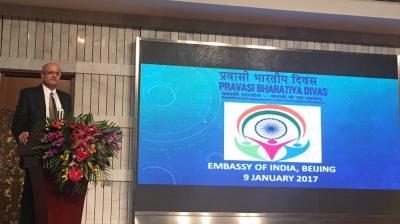India and China open new channels of dialogue to reboot ties
Jolted by the military face-off in the Doklam plateau, India and China are rebooting their ties by opening new channels of official communication, which would address points of friction, before they develop into full-blown crises.
“The Chinese appear to have taken a strategic decision to reboot ties with India with a new and positive mindset following the Doklam crisis,” an official source, who did not wish to be named, told TheHindu.
He added: “After talks between Prime Minister Narendra Modi and President Xi Jinping on Tuesday, there is much anticipation that the quality of core communication between the two countries will greatly improve.”
Yet, New Delhi has concerns that despite the fresh start in Xiamen on the sidelines of the BRICS summit, the impending leadership changes in China at next month’s 19th National Party Congress, will impact the trajectory of New Delhi and Beijing ties. It is widely anticipated that Yang Jiechi, State Counselor and China’s Special Representative at the boundary talks with India, will retire.
China’s apparent policy shift on international terrorism, as reflected in the BRICS statement, will also be tested when the United Nations 1267 committee meets in October to discuss the designation of Masood Azhar, the head of the Pakistan-based Jaish-e-Mohammad, as an international terrorist. China has so far resisted bracketing Azhar in the list of global terrorists, but there is some optimism now that Beijing may be ready to shift its stance on this issue, notwithstanding its special relationship with Pakistan.
The new hands-on mechanism will supplement the already existing, but periodically held, “strategic dialogue” between the two countries. It is expected to address concerns of an aspirational India and rising China in the region, including the Indian Ocean and the Asia-Pacific.
Analysts say that the thinking driving India’s Act-East policy, with the Association of South East Asian Nations (ASEAN) as its core, and China’s Belt and Road Initiative (BRI) is far from aligned. India’s Indo-Pacific doctrine, which covers the island territories of the Pacific, with a significant diaspora population, is raising apprehensions in China that instead of the pursuit of an independent policy, India is allowing itself to drift into a China-containment mode, with Tokyo and Washington as partners.
The conduct of the Malabar series of naval exercises among India, Japan and the United States is also fueling anxieties in the Chinese officialdom. India on the other hand has its own concerns about Chinese intentions in the South China Sea and New Delhi’s South Asian neighbourhood, including Sri Lanka, Nepal and the Maldives.
During a media briefing on Tuesday after the meeting between Prime Minister Modi and President Jinping, India’s Foreign Secretary S. Jaishankar highlighted that the two leaders had “laid out a very positive view of the relationship”. He added that they had held “a detailed discussion about the mechanisms which could help both countries really go forward in that direction”.
On Tuesday afternoon, Chinese foreign ministry spokesperson Geng Shuang also underscored that India and China should “reinforce communication and coordination in international affairs and make the international order more just and equitable”.
An official source had earlier said that during talks in Xiamen, India wanted to “bury the ghost” of Doklam, so as to open a new chapter in ties with China. Another official pointed out that the dip in the economy, highlighted by the recent cabinet reshuffle in New Delhi, has added to the urgency of engaging with China, whose potential as a major source of foreign investment in India still remains largely untapped. Mr. Geng had also advocated that the two countries should “strengthen the synergy of development strategy” and “expand cooperation in infrastructure construction and connectivity”.
Notwithstanding the intent to break common ground, India continued to differ with China and Russia on accommodating the Taliban, accused of terrorism, in diplomacy to restore calm in Afghanistan. Afghanistan was the major issue of discussion during Mr. Modi’s lengthy conversation with President Vladimir Putin on the margins of the summit.




